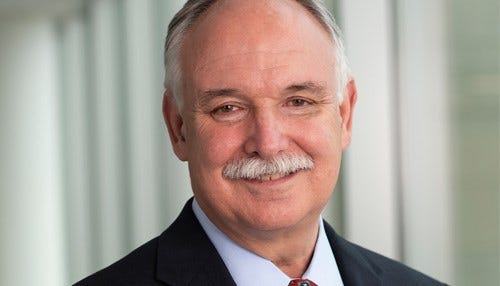IU Melvin and Bren Simon Cancer Center earns prestigious NCI designation

Subscriber Benefit
As a subscriber you can listen to articles at work, in the car, or while you work out. Subscribe NowFour decades ago, when I came to Indianapolis from Chicago for an elective during my fourth year of medical school, I witnessed a miracle of medical science. A then-young assistant professor named Larry Einhorn had conceived a combination of drugs that melted away metastatic testicular cancer, which was the biggest cause of cancer deaths for young men. Larry worked with Drs. John Donohue and Ken Kesler to change the paradigm of oncology by making what seemed impossible possible.
Stephen Williams, a fellow at that time, would later do the same for ovarian germ cell tumors. He would become the founding director of the then-Indiana University Cancer Center and lead it to earning in 1999 the prestigious National Cancer Institute designation — a designation that recognized the center’s outstanding research.
Over the next 20 years, we’d demonstrate to the NCI — the nation’s top cancer agency — that our research continued to meet its rigorous criteria, allowing us to repeatedly earn the designation that put us in the elite company of the nation’s best cancer centers. In 2006, our center’s name changed to the Indiana University Melvin and Bren Simon Cancer Center to reflect a generous $50 million gift made by the late Melvin Simon and his wife, Bren. In 2010, I succeeded my friend and colleague Stephen Williams as cancer center director following his death from melanoma.
Most recently, we paused in early August to celebrate a milestone: We earned the NCI’s Comprehensive Cancer Center designation. The designation recognizes the center’s added depth and breadth in basic, clinical and population research, as well as its effective community outreach program across the state.
The comprehensive designation places us in the company of only 51 other cancer centers nationwide, including the University of Texas MD Anderson Cancer Center, Dana-Farber/Harvard Cancer Center, Memorial Sloan-Kettering Cancer Center and Sidney Kimmel Comprehensive Cancer Center at Johns Hopkins. Previously, no other cancer center in the Midwest had earned this top designation since it was awarded to the University of Chicago more than a decade ago.
Most importantly, the discoveries made in our labs will continue to move into the patient setting to improve lives. This “bench-to-bedside” approach benefits patients as researchers and physicians work together to find better ways to prevent, diagnose and treat cancer. Another benefit for patients is that we offer clinical trials that are only available at the nation’s leading cancer centers.
Plus, patients benefit from the work of brilliant and talented IU physician-scientists who have changed the field of oncology. These men and women have altered or defined treatment standards for:
- breast cancer
- gastrointestinal cancer, including pancreatic and colon cancers
- genitourinary cancer, such as testis, bladder and prostate cancers
- hematologic disorders, including multiple myeloma and leukemia
- thoracic cancer
- thymoma and thymic carcinoma
- tumors associated with neurofibromatosis type 1, primarily in children
- umbilical stem cell transplantation
The center’s physicians care for patients through a partnership with Indiana University Health, the state’s largest and most comprehensive health system, and through the Sidney & Lois Eskenazi Hospital and the Richard L. Roudebush VA Medical Center, both in downtown Indianapolis.
Outside of the clinical setting, the center’s researchers partner with organizations to improve the health of all Hoosiers. The collaborative work focuses on reducing the number of new cancer cases and the number of deaths caused by the disease. This also includes initiatives to increase HPV vaccination rates as well as developing, testing and disseminating interventions to increase breast, cervical and colorectal cancer screening, especially in racially diverse and rural populations in Indiana. Much of that work is grounded in behavioral oncology research under the pioneering leadership of Dr. Victoria Champion.
Our researchers and physicians — which number nearly 250 strong and represent multiple IU Schools including Medicine; Nursing; Public Health; Engineering and Technology; Informatics, Computing and Engineering and more — continue to follow in the footsteps of the likes of Einhorn, Williams, Champion and others. Each is dedicated to decreasing the burden of cancer for our patients in Indiana and beyond.
Dr. Patrick J. Loehrer, Sr. is the director of the Indiana University Melvin and Bren Simon Cancer Center.
